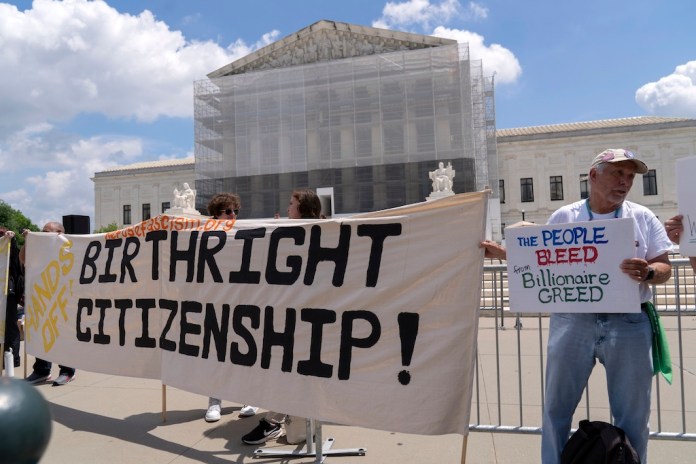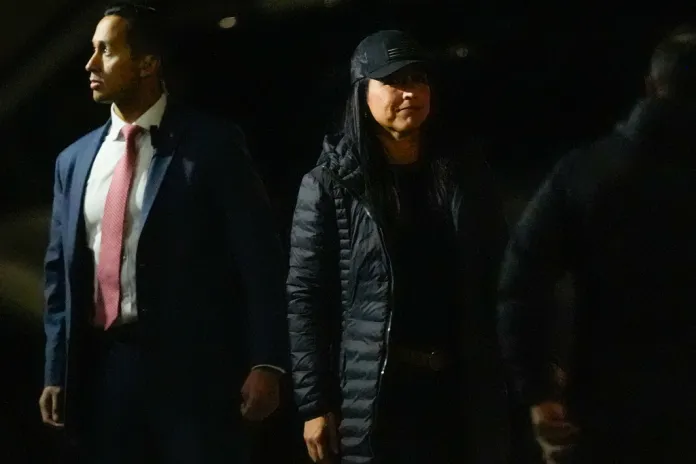Federal Appeals Court Overturns Judge Boasberg in Massive Immigration Win for Trump
U.S. District Court Judge James boasberg was denied his attempt to impose criminal contempt charges on Trump management officials who allegedly violated his order to halt the deportation of certain criminal illegal immigrants under the Temporary Restraining Order (TRO). the case focused on the administration’s use of the Alien Enemies Act to deport Venezuelans to el Salvador despite Boasberg’s injunction. The U.S. court of Appeals for the D.C. Circuit ruled 2-1 against Boasberg’s contempt charges, marking a notable victory for the trump administration. Judges Gregory Katsas and Neomi Rao, appointed by President Trump, supported the decision, criticizing the district court for overstepping judicial authority in matters involving executive functions like foreign policy and criminal prosecutions.In dissent, Judge Cornelia Pillard, appointed by President Obama, emphasized the importance of enforcing court orders and accountability for disobedience. The ruling highlights ongoing tensions between the judiciary and executive branches over jurisdiction and separation of powers.
U.S District Court Judge James Boasberg was handed a defeat Friday in his bid to slap criminal contempt charges against Trump administration officials he said defied his order to block the deportation of criminal illegal immigrants.
Boasberg had sought to rein in the administration from using the Alien Enemies Act to deport Venezuelans and had threatened criminal contempt charges after finding that officials violated a Temporary Restraining Order he gave that planes heading for El Salvador with criminal illegal immigrants should return to the United States.
The 2-1 ruling of the panel of the U.S. Court of Appeals for the District of Columbia Circuit threw out the charges in what was dubbed “a massive victory for the Trump administration,” by CBS.
Judges Gregory Katsas and Neomi Rao, both of whom were appointed by President Donald Trump in his first term, supported the ruling.
Judge Cornelia Pillard, who was appointed by former President Barack Obama, dissented.
Each judge wrote separate opinions. In his, Katsas called the dispute “an extraordinary, ongoing confrontation between the Executive and Judicial Branches.”
He wrote that Boasberg’s actions were designed to “vindicate a TRO that the Supreme Court had vacated for lack of jurisdiction,” using the acronym for a Temporary Restraining Order.
“The district court’s order raises troubling questions about judicial control over core executive functions like the conduct of foreign policy and the prosecution of criminal offenses,” he wrote.
He said the case also concerns “an unsettled issue whether the judiciary may impose criminal contempt for violating injunctions entered without jurisdiction.”
He added that “the government is plainly correct about the merits of the criminal contempt, and our saying so now would prevent long disputes between the Executive and the Judiciary over difficult, contentious issues regarding the courts’ power to control foreign policy or prosecutions, or to impose criminal sanctions for violating injunctions entered without jurisdiction.”
WOW: Openly anti-Trump judge is SLAPPED by appellate court ruling
“[Boasberg]’s abuse of the contempt power is especially egregious”
Boasberg is totally out of control—he needs to be impeached.
No more excuses. @SpeakerJohnson https://t.co/vD44nEf8jM— John Strand (@JohnStrandUSA) August 8, 2025
Referring to the contempt charges threat, Rao wrote that “the district court cannot use the threat of such punishment as a backdoor to obtain compliance with a vacated and therefore unenforceable TRO.”
“The district court’s abuse of the contempt power is especially egregious because contempt proceedings against senior Executive Branch officials carry profound ‘separation of power[s] overtones’ that demand the most ‘sensitive judicial scrutiny.’”
In short, she wrote, Boasberg’s effort “exceeds the court’s authority and amounts to a clear abuse of discretion,”
Pillard said the legal system requires blind obedience to a judge.
“Our system of courts cannot long endure if disappointed litigants defy court orders with impunity rather than legally challenge them. That is why willful disobedience of a court order is punishable as criminal contempt,” Pillar wrote.
“When it appears that a judicial order has been disobeyed, the court’s ability to learn who was responsible is the first step to accountability.”
Advertise with The Western Journal and reach millions of highly engaged readers, while supporting our work. Advertise Today.
" Conservative News Daily does not always share or support the views and opinions expressed here; they are just those of the writer."




